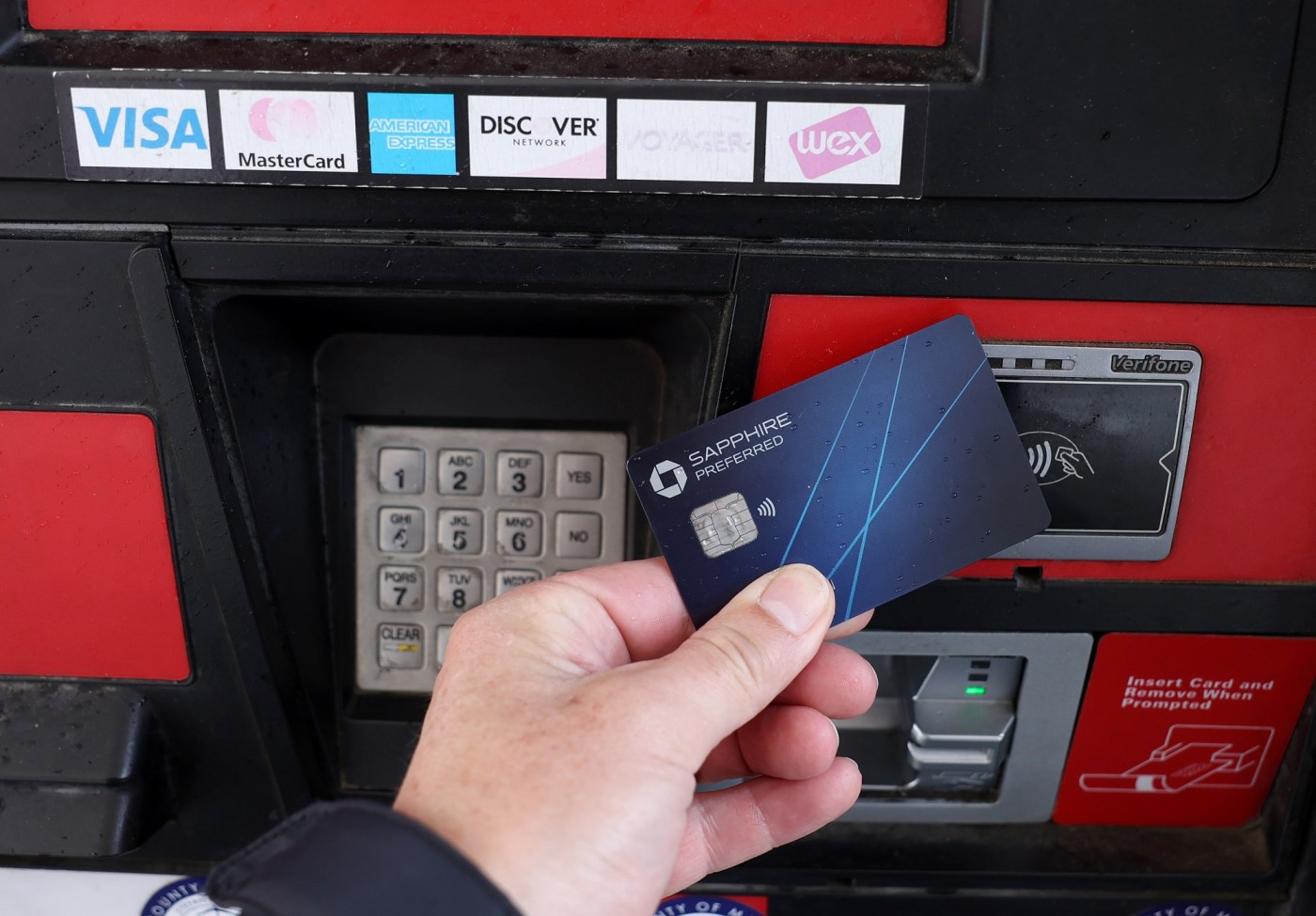By Gregory Karp, Jae Bratton | NerdWallet
If you’re paying full price at the gas pump these days, you might be missing a way to fuel your household savings. That’s because many rewards credit cards offer bonus points when you use them at the gas station.
Used right, those rewards are like a discount on every gallon you buy. Few consumers would turn down these savings when the average price of a gallon of gas as of May 2024 was $3.61, according to AAA.
It’s fairly common now to get triple points — 3 points per dollar spent — for using a rewards card to pay for gas. Notably, some of the best cards for fill ups don’t feature the names of big oil companies or their service station brands. Instead, you’ll likely save the most with general rewards credit cards or cards associated with warehouse clubs and credit unions.
As you shop around for a card that will shrink your gas budget, keep these tips in mind.
Use 3% as a benchmark
The most lucrative cards for gas offer the equivalent of 3% or more in rewards. Better still, many cards with high rewards rates don’t charge an annual fee, so you’ll pay nothing to earn rewards that can be redeemed for cash back, gift cards, travel and more.
Credit score matters
More often than not, rewards rates of 3x and above are found in cards that require at least good credit, or a FICO score of at least 670, to qualify. If you have a low credit score, expect your credit card options to be limited. Nonetheless, there are a few cards for people with bad, limited or no credit that earn rewards, albeit modest ones.
Mind the caps
Some cards — especially those with 5% rates and no annual fee — limit how much gas spending will earn bonus rewards. For example, you might get 4% on gas purchases up to $7,000 in annual spending. After hitting the cap, gas purchases earn just 1% until the new year. Before applying for a card for gas purchases, check the rewards cap, if any, and decide if it’s generous enough to accommodate your spending.
Beware of ‘cents off’ rewards
Instead of a percentage of cash back or points per dollar spent, some cards — especially gas station-branded cards — give you a specific discount, such as 6 cents off per gallon. But when gas costs $3 per gallon, that 6 cents off is a mundane 2% discount. Plus, gas station cards typically earn rewards that can only be spent at that particular merchant.
Rewards at the gas station vs. pump
Many cards that offer outsized rewards on gas spending also reward purchases inside the service station such as snacks and wiper fluid. But some cards limit rewards to gas spending paid at the pump, and some gas cards earn elevated rewards only on in-store purchases, not fill ups.
Rewards credit cards have terms and conditions that govern their rewards programs; read through them to see what purchases earn rewards and if that list aligns with your expectations.
Warehouse cards have pros and cons
Warehouse clubs like Sam’s and Costco can be great places to get cheaper gas, savings that are compounded when combined with the stores’ co-branded credit cards that offer high rewards rates on gas. However, these same cards only earn those desirable cash-back rates up to a certain annual cap, and the reward redemption process can be cumbersome.
Remember, too, that you must be a member of those warehouse clubs, which means paying an annual membership fee.
Stack rewards with card-linked offers
Many rewards cards offer digital coupons in the form of card-linked offers through the issuer’s app. You “clip” the coupon by adding it to your card, and once you make a qualifying purchase, you’ll receive your savings, often in the form of a statement credit. It’s common to find card-linked offers for gas purchases, so before your next fill up, skim through your card’s digital coupon list for a station near you. You’ll save with the card-linked offer and earn rewards from that fresh tank, if your card earns rewards on gas.
Look beyond gas rewards
As you shop for a good gas credit card, consider whether the card offers rewards in other categories that align with your spending habits. That way, your gas credit card card transforms into an everyday card that you can use to pay for things like groceries, take out and streaming.
Plus, you might not spend as much on gas as you think. In 2023, U.S. households spent an average of $2,635 per year on gasoline, according to the Bureau of Labor Statistics. Even with a 3% rewards card, that’s $79.05 cash back per year, or about $6.50 per month.
More From NerdWallet
The Hidden Cost of Helping Friends Earn More Credit Card Rewards
At Risk of Missing a Credit Card Payment? Act Now to Lessen Impact
Your 2024 Credit Card Checklist for Summer Travel
Gregory Karp writes for NerdWallet. Email: articles@nerdwallet.com. Twitter: @spendingsmart.
The article How to Use Credit Cards to Save Money on Gas originally appeared on NerdWallet.












